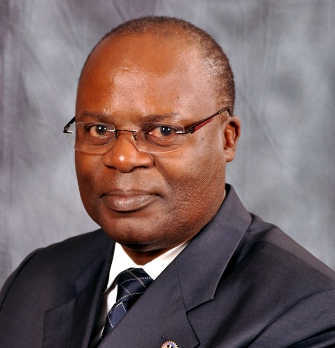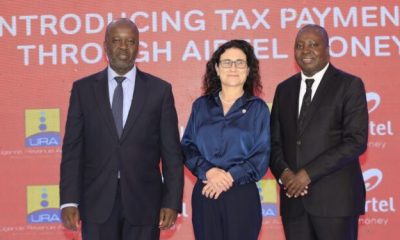Business
Why Islamic banking remains elusive in Uganda

“Islamic banks are required to know the project and use of funds, leading to close relationships with entrepreneurs and the likelihood that funds are allocated for the stated investment,” writes IMF.
Statements from different government officials appear to suggest that some progress has been made to embrace the Islamic banking model.
Finance Minister Maria Kiwanuka told a meeting held in Kampala last week that: “The cabinet has agreed to allow this type of banking. It was forwarded to the Parliamentary committee responsible and if MPs pass the bill into law, then we shall roll it out.”
Kiwanuka added that the government is supportive of the model as it offers numerous advantages not just to the lenders and borrowers but also to the general economy.
Islamic financial institutions for example offer many governments the opportunity of tapping into their deep pockets, by issuing bonds or (Sukuk). In Kenya, the country’s two financial institutions that operate the Islamic financing model, have participated in Sukuks – (read invested in bonds.)
Another product offered by Islamic financial institutions is the so-called Murabaha – a modality by which a bank buys goods and sells to a customer on a deferred basis. Many countries like Kenya have had to revise their laws to permit banks to engage in wholesale buying of goods.
The Deputy Governor of the Bank of Uganda Dr. Louis Kasekende recently presented a paper at Serena Hotel in which he stated that the central bank is prepared for Islamic banking.
He pointed out that BoU has already engaged the Muslim community through the Uganda Muslim Supreme Council (UMSC) to provide sensitization to the public about Islamic banking. He added that the Islamic University in Uganda as well as the Uganda Institute of Banking and Finance have been engaged to review their curricula to include courses tailored towards Islamic Banking.
“BoU is in the process of engaging a consultant to develop a comprehensive Regulatory and Supervisory Framework for Islamic Banking and the consultant will also identify the necessary modifications to the tax Regime and BoU will liaise with the relevant authorities to explore ways of accommodating the unique features of Islamic Banking in the tax laws,” said Kasekende.
Dissatisfaction
Despite steps being taken by the government, some sections of the Muslim community feel the government is dragging its feet on what they consider a vital vehicle for mobilising capital.
A group of youthful educated muslims has formed a pressure group to push for the authorization of Islamic banking in Uganda.
The committee is chaired by one Jawad Mbogo and deputized by Hashim Miganda who have vowed for the push for the government’s approval of Islamic banking in Uganda.
Miganda argues however that their efforts are frustrated by the reluctance of senior muslim leaders to throw their weight behind efforts to introduce Islamic banking.
Miganda said: “Many people think that an Islamic bank will one day drop from heaven and land in Uganda without determined individuals ever standing up to play their role,” Miganda said Many people think things will just fall into place.”
He added that with support of the UMSC leadership, his group is determined to provide leadership.
“All we want is UMSC to endorse us and we shall do the rest,” Miganda said explaining that they have already secured a group of investors ready to inject money when the first Islamic financial institution is opened in Uganda.
“The purpose of this committee is to inform the Uganda Mufti and indeed the Muslim Community that we have heard what our UMSC leader (His Excellence, The Mufti) has been preaching us over the years and we have decided to be practical. Our goal is to ensure that we organize individual Muslims and Islamic Organizations within and outside the country to support the formation of an Islamic Banking Institution in the country,” partly reads a report issued by committee recently.
Opposition from ordinary banks?
Some sections of Kampala’s business community who spoke to The Sunrise opine that the idea of Islamic banking may be facing resistance from conventional banking institutions allegedly for fear of facing tight competition on lending.
“It is understandable for conventional banks to fear any institution lending interest-free loans to give them a run for their money,” said Sentamu Kaddu, the General Secretary of the Kampala City Traders Association (KACITA).
“I can’t imagine how doing business in Uganda would ease if Islamic banking was introduced tomorrow. And I wonder how I would continue borrowing unfriendly loans with prohibitive interest rates. ” He added.
But the Executive Director of the Uganda bankers Association Emmanuel Turyamuhika Kikoni has dismissed the allegation of possible competition as baseless and untrue explaining that conventional bank managers will also be at liberty to operate Islamic bank windows when that time comes after all.
Kikoni has however cautioned those intending to open up Islamic banking ventures to tread carefully in risky areas such as agriculture where he warns that vagaries of whether make it difficult to determine the margin of profit a business venture is likely to fetch over a time.
“If for example a profit-based bank lends out Ushs10 million to a client to grow maize and it fails due to a bad whether, the next thing will be loss-sharing which definitely affects that bank.” Kikoni warned.
Despite its promises and claims by its supporters, Islamic banking institutions still hold a tiny fraction of the world’s total assets. According to the IMF, Islamic banks control just under one percent of the world’s financial assets.
Comments


















